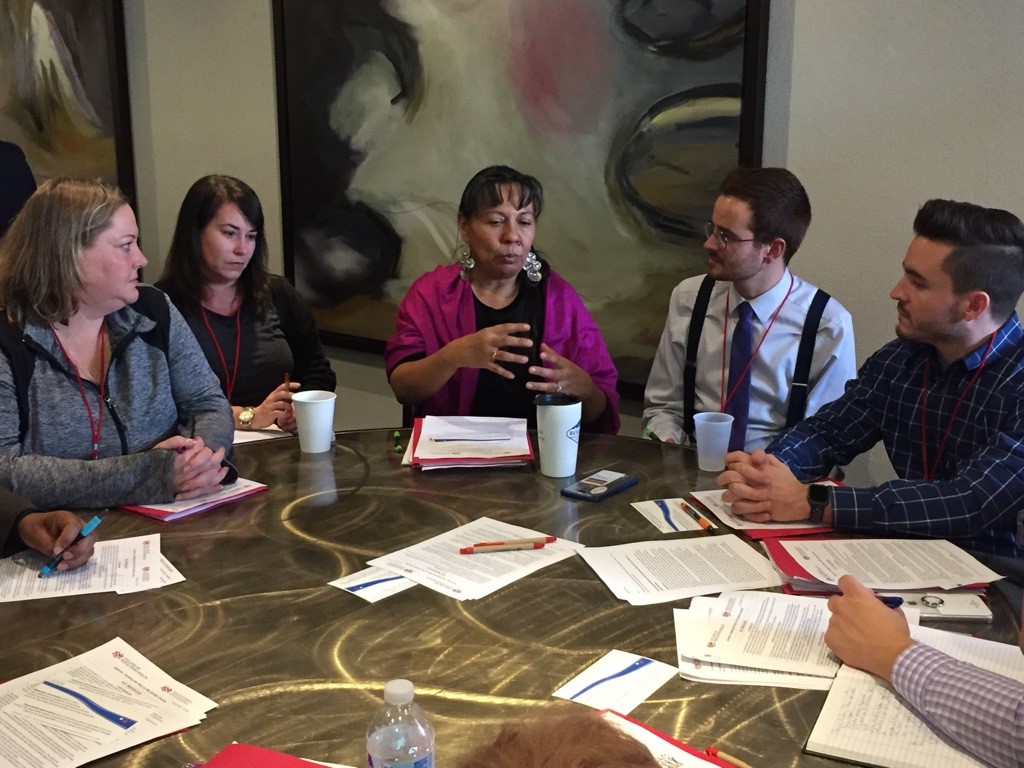 The CSPAC is comprised of experts from academia, government, policy, the media, business, and nongovernmental and private organizations. The central role of the CSPAC is to bridge the “know-do” gap of intervention research by: working with the TREE Center to cultivate research collaborations, support the training and mentoring of URM’s, help identify community-oriented scholars and community research projects and assist in translating and co-disseminating evidence to practice and policy.
The CSPAC is comprised of experts from academia, government, policy, the media, business, and nongovernmental and private organizations. The central role of the CSPAC is to bridge the “know-do” gap of intervention research by: working with the TREE Center to cultivate research collaborations, support the training and mentoring of URM’s, help identify community-oriented scholars and community research projects and assist in translating and co-disseminating evidence to practice and policy.
The CSPAC meets once per year to advise the TREE Center about its community engaged research portfolio and broader issues of providing reviews on publications, reports and grant and funding applications.
 Sound policies follow good evidence, yet critical gaps remain between research, policy and practice.
Sound policies follow good evidence, yet critical gaps remain between research, policy and practice.
The Equity in Policy Institute is a unique training comprised of 3 days and 9 modules, ongoing technical assistance and culminating with a half day of “policy dialogues.” The policy dialogues foster the development and implementation of more equitable policies; contribute to good governance and democracy; and broaden and increase engagement of people most impacted. See EPI Labs
The training fills a need for local champions and academic researchers to learn how to conduct policy analysis from decolonized and racial justice approaches.
Despite continued evidence of disproportionate adverse impacts of social disadvantage on racial and ethnic communities, insufficient attention has been paid to how research can be leveraged with place-based networks to promote sound policies that advance health equity.
To address this "know-do" gap, Lisa Cacari Stone had designed the Equity 'n Policy Training Institute in order to strengthen the use, translation and dissemination of both academic and community evidence for policy making: “this training fits a unique gap in our nation with both a focus on equity policy and engaging diverse partners to conduct policy analysis.”
Founding director, Lisa Cacari Stone explains the need for the institute: “Too often, policies are made within the confines of power, politics, white privilege and intellectual colonialism and the voices, lived experiences and community data of the ‘oppressed’ are ‘suppressed’. In order to equalize power differentials, knowledge must be produced from multiple diverse communities.”

Twelve community-academic teams (comprised of 75+ partners, mostly people of color) will release online equity policy briefs and half of the teams will produce digital policy stories dedicated to:
Together, we are creating a practical policy model for democratizing knowledge for social change and racial justice.
For more information contact: Dr. Lisa Cacari Stone
 “Ignite for Equity” talks are a key innovation of our work and feature our community partners. Embracing “narrative as change for healing” they are a dynamic method for presenting brief, impactful talks on topics related to behavioral health evidence, best practices and healing trauma and resilience.
“Ignite for Equity” talks are a key innovation of our work and feature our community partners. Embracing “narrative as change for healing” they are a dynamic method for presenting brief, impactful talks on topics related to behavioral health evidence, best practices and healing trauma and resilience.

UNM Transdisciplinary Research, Equity and Engagement Center for Advancing Behavioral Health (TREE Center)
1011 Las Lomas Rd NE
Albuquerque, NM 87102
MSC07-4265
1 University of New Mexico
Albuquerque, NM 87131
NIMHD Grant #U54 MD004811-10
Office: 505-243-6803
Director and Principal Investigator
Lisa Cacari Stone, PhD, MS, MA (ella y suya/ she, her and hers)
lcacari-stone@salud.unm.edu
Email: treecenter@unm.edu